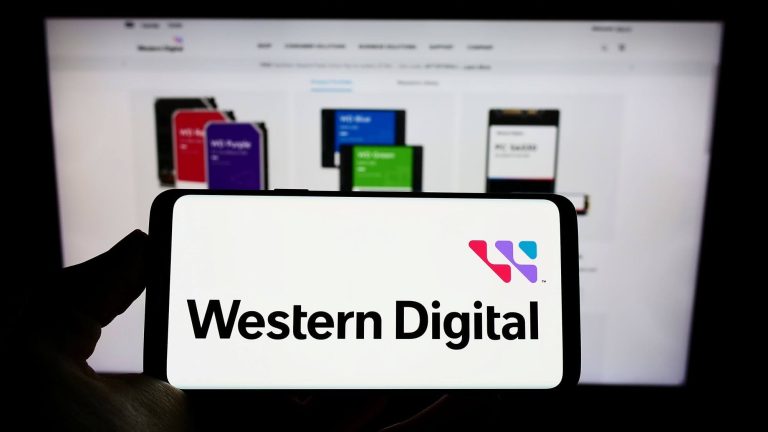
Smart Cities: Urban Trends for 2025
Introduction to Smart Cities
Smart Cities, the focus keyword for this article, is a concept that has gained significant attention in recent years. As the world becomes increasingly urbanized, cities are looking for ways to become more efficient, sustainable, and livable. Smart Cities, Smart Cities use advanced technologies such as IoT sensors, data analytics, and artificial intelligence to manage and optimize urban systems, making them more efficient, sustainable, and livable.
Urban Trends for 2025
So, what are the urban trends that will shape the future of Smart Cities in 2025? Some of the key trends include:
- Sustainable Infrastructure: Cities will focus on developing sustainable infrastructure, such as green buildings, renewable energy systems, and efficient transportation systems.
- Innovative Technologies: Cities will adopt innovative technologies, such as IoT sensors, data analytics, and artificial intelligence, to manage and optimize urban systems.
- Enhanced Citizen Engagement: Cities will prioritize citizen engagement, using digital platforms and other tools to involve citizens in the decision-making process and provide them with personalized services.
- Increased Focus on Resilience: Cities will focus on building resilience, developing strategies to mitigate the impact of natural disasters, climate change, and other potential disruptions.
Benefits of Smart Cities
The benefits of Smart Cities are numerous. Some of the most significant benefits include:
- Improved Efficiency: Smart Cities use data analytics and other technologies to optimize urban systems, making them more efficient and reducing waste.
- Enhanced Sustainability: Smart Cities prioritize sustainability, reducing their environmental impact and promoting green technologies.
- Increased Livability: Smart Cities prioritize citizen engagement and provide personalized services, making them more livable and responsive to the needs of citizens.
- Improved Resilience: Smart Cities develop strategies to mitigate the impact of natural disasters, climate change, and other potential disruptions, making them more resilient.
Challenges and Opportunities
While Smart Cities offer numerous benefits, they also present several challenges and opportunities. Some of the most significant challenges include:
- Privacy and Security: Smart Cities must balance the need for data collection and analysis with concerns about privacy and security.
- Equity and Inclusion: Smart Cities must prioritize equity and inclusion, ensuring that all citizens have access to the benefits of Smart City technologies.
- Financial Sustainability: Smart Cities must develop sustainable financial models, ensuring that they can maintain and upgrade their technologies over time.
- Collaboration and Partnerships: Smart Cities must foster collaboration and partnerships between government, private sector, and civil society, ensuring that all stakeholders work together to achieve common goals.
Despite these challenges, Smart Cities offer numerous opportunities for innovation, growth, and development. As cities continue to evolve and adapt to the changing needs of their citizens, they will become increasingly important drivers of economic growth, social progress, and environmental sustainability.
Conclusion
In conclusion, Smart Cities are the future of urban development, and 2025 will be a critical year for the evolution of this concept. As cities become increasingly urbanized, they will need to adopt innovative technologies and strategies to manage and optimize urban systems, making them more efficient, sustainable, and livable. By prioritizing sustainable infrastructure, innovative technologies, enhanced citizen engagement, and increased focus on resilience, cities can become smarter, more responsive, and more livable, providing a high quality of life for their citizens.
The focus keyword, Smart Cities, will continue to shape the future of urban development, and 2025 will be a critical year for the evolution of this concept. As cities continue to adapt to the changing needs of their citizens, they will become increasingly important drivers of economic growth, social progress, and environmental sustainability.
Final Thoughts
As we look to the future, it is clear that Smart Cities will play a critical role in shaping the urban landscape. With their focus on sustainability, innovation, and citizen engagement, Smart Cities will become increasingly important drivers of economic growth, social progress, and environmental sustainability. By embracing the concept of Smart Cities and working together to address the challenges and opportunities they present, we can create a brighter, more sustainable future for generations to come.
With the rise of Smart Cities, we can expect to see significant improvements in the quality of life for urban residents. From improved transportation systems to enhanced public services, Smart Cities will provide a high standard of living for their citizens. As the world becomes increasingly urbanized, the importance of Smart Cities will only continue to grow, making them a critical component of our collective future.
Additional Resources
For more information on Smart Cities and urban trends, please visit the following resources:
- National League of Cities: https://www.nlc.org/
- Smart Cities Council: https://smartcitiescouncil.com/
- Urban Land Institute: https://uli.org/
These resources provide a wealth of information on Smart Cities, including case studies, research reports, and best practices. By exploring these resources, you can gain a deeper understanding of the concept of Smart Cities and how they are shaping the future of urban development.
Conclusion and Final Thoughts
In conclusion, Smart Cities are the future of urban development, and 2025 will be a critical year for the evolution of this concept. As cities become increasingly urbanized, they will need to adopt innovative technologies and strategies to manage and optimize urban systems, making them more efficient, sustainable, and livable. By prioritizing sustainable infrastructure, innovative technologies, enhanced citizen engagement, and increased focus on resilience, cities can become smarter, more responsive, and more livable, providing a high quality of life for their citizens.
As we look to the future, it is clear that Smart Cities will play a critical role in shaping the urban landscape. With their focus on sustainability, innovation, and citizen engagement, Smart Cities will become increasingly important drivers of economic growth, social progress, and environmental sustainability. By embracing the concept of Smart Cities and working together to address the challenges and opportunities they present, we can create a brighter, more sustainable future for generations to come.
The focus keyword, Smart Cities, will continue to shape the future of urban development, and 2025 will be a critical year for the evolution of this concept. As cities continue to adapt to the changing needs of their citizens, they will become increasingly important drivers of economic growth, social progress, and environmental sustainability.
Smart Cities and Urban Planning
Smart Cities are not just about technology; they are also about urban planning. By designing cities that are more efficient, sustainable, and livable, urban planners can create a high quality of life for citizens. This includes designing green spaces, public transportation systems, and mixed-use developments that promote walkability and bikeability.
Urban planners must also consider the social and economic impacts of Smart City technologies. For example, the use of data analytics and AI can help identify areas of poverty and inequality, allowing cities to target interventions and improve outcomes for disadvantaged populations.
Smart Cities and Transportation
Transportation is a critical component of Smart Cities. By investing in smart transportation systems, cities can reduce congestion, improve air quality, and enhance the overall quality of life for citizens. This includes investing in electric or self-driving vehicles, improving public transportation systems, and promoting walkability and bikeability.
Smart Cities can also use data analytics and AI to optimize traffic flow and reduce congestion. For example, cities can use real-time data to adjust traffic signal timing, reducing congestion and decreasing travel times.
Smart Cities and Energy
Smart Cities are also focused on energy efficiency and sustainability. By investing in renewable energy sources, such as solar or wind power, cities can reduce their carbon footprint and improve air quality.
Cities can also use smart grid technologies to manage energy distribution and consumption. For example, cities can use advanced metering infrastructure to track energy usage in real-time, allowing them to identify areas of inefficiency and optimize energy distribution.
Smart Cities and Water Management
Smart Cities must also prioritize water management. By investing in smart water systems, cities can reduce waste, improve water quality, and enhance the overall quality of life for citizens.
Cities can use data analytics and AI to optimize water distribution and consumption. For example, cities can use real-time data to detect leaks and predict water demand, allowing them to optimize water distribution and reduce waste.
Smart Cities and Waste Management
Smart Cities must also prioritize waste management. By investing in smart waste systems, cities can reduce waste, improve recycling rates, and enhance the overall quality of life for citizens.
Cities can use data analytics and AI to optimize waste collection and disposal. For example, cities can use real-time data to track waste generation and disposal, allowing them to identify areas of inefficiency and optimize waste collection and disposal.
Conclusion
In conclusion, Smart Cities are the future of urban development, and 2025 will be a critical year for the evolution of this concept. As cities become increasingly urbanized, they will need to adopt innovative technologies and strategies to manage and optimize urban systems, making them more efficient, sustainable, and livable. By prioritizing sustainable infrastructure, innovative technologies, enhanced citizen engagement, and increased focus on resilience, cities can become smarter, more responsive, and more livable, providing a high quality of life for their citizens.
The focus keyword, Smart Cities, will continue to shape the future of urban development, and 2025 will be a critical year for the evolution of this concept. As cities continue to adapt to the changing needs of their citizens, they will become increasingly important drivers of economic growth, social progress, and environmental sustainability.
By embracing the concept of Smart Cities and working together to address the challenges and opportunities they present, we can create a brighter, more sustainable future for generations to come. The future of urban development is smart, and it is up to us to shape it.





